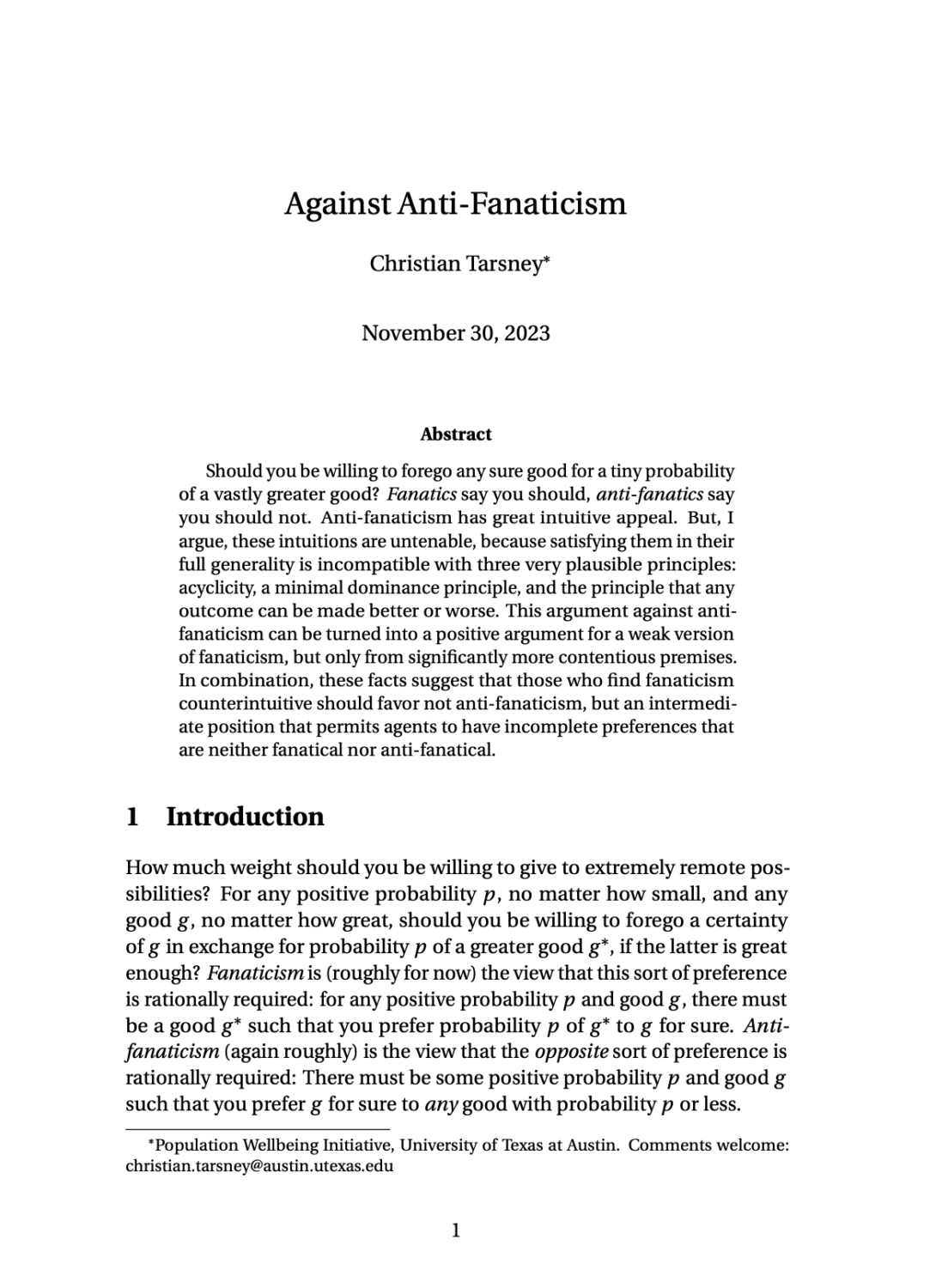Against Anti-Fanaticism
Christian Tarsney (Population Wellbeing Initiative, University of Texas at Austin)
GPI Working Paper No. 15-2023
Should you be willing to forego any sure good for a tiny probability of a vastly greater good? Fanatics say you should, anti-fanatics say you should not. Anti-fanaticism has great intuitive appeal. But, I argue, these intuitions are untenable, because satisfying them in their full generality is incompatible with three very plausible principles: acyclicity, a minimal dominance principle, and the principle that any outcome can be made better or worse. This argument against anti-fanaticism can be turned into a positive argument for a weak version of fanaticism, but only from significantly more contentious premises. In combination, these facts suggest that those who find fanaticism counterintuitive should favor not anti-fanaticism, but an intermediate position that permits agents to have incomplete preferences that are neither fanatical nor anti-fanatical.
Other working papers
When should an effective altruist donate? – William MacAskill (Global Priorities Institute, Oxford University)
Effective altruism is the use of evidence and careful reasoning to work out how to maximize positive impact on others with a given unit of resources, and the taking of action on that basis. It’s a philosophy and a social movement that is gaining considerable steam in the philanthropic world. For example,…
A bargaining-theoretic approach to moral uncertainty – Owen Cotton-Barratt (Future of Humanity Institute, Oxford University), Hilary Greaves (Global Priorities Institute, Oxford University)
This paper explores a new approach to the problem of decision under relevant moral uncertainty. We treat the case of an agent making decisions in the face of moral uncertainty on the model of bargaining theory, as if the decision-making process were one of bargaining among different internal parts of the agent, with different parts committed to different moral theories. The resulting approach contrasts interestingly with the extant “maximise expected choiceworthiness”…
Longtermism in an Infinite World – Christian J. Tarsney (Population Wellbeing Initiative, University of Texas at Austin) and Hayden Wilkinson (Global Priorities Institute, University of Oxford)
The case for longtermism depends on the vast potential scale of the future. But that same vastness also threatens to undermine the case for longtermism: If the future contains infinite value, then many theories of value that support longtermism (e.g., risk-neutral total utilitarianism) seem to imply that no available action is better than any other. And some strategies for avoiding this conclusion (e.g., exponential time discounting) yield views that…

